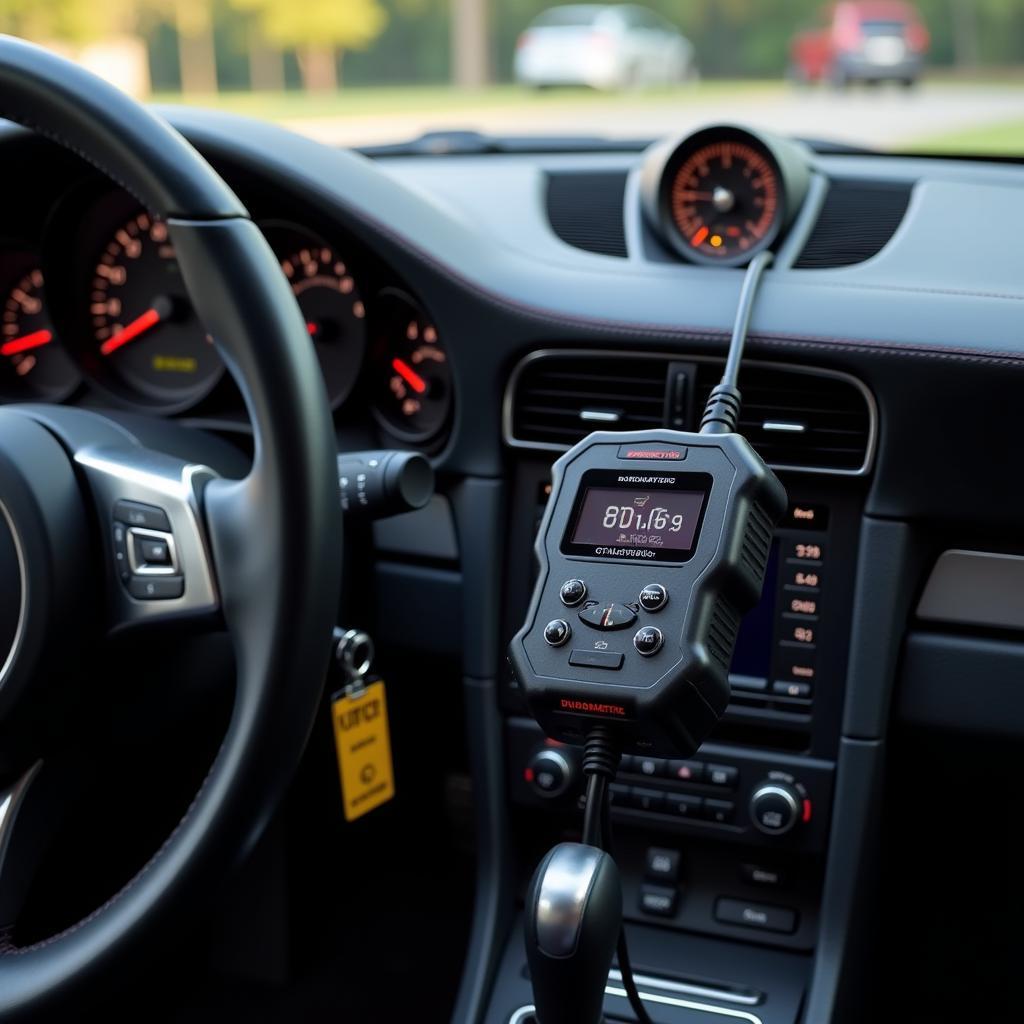Low-cost diagnostics and tools are revolutionizing automotive repair, particularly in regions with limited resources. This allows both individual car owners and smaller repair shops to access previously expensive diagnostic capabilities, empowering them to troubleshoot and fix vehicle issues effectively. This shift is driven by the increasing affordability and availability of diagnostic software and hardware, opening up new possibilities for global vehicle health.
Empowering Car Owners with Affordable Diagnostics
Imagine being able to diagnose your car troubles without hefty garage bills. Low-cost diagnostics make this a reality. User-friendly OBD-II scanners, paired with intuitive software, give car owners the power to understand their vehicle’s health. These tools can identify the infamous “check engine” light culprit, troubleshoot performance issues, and even monitor fuel efficiency. This empowers car owners to make informed decisions about repairs, potentially saving significant money in the long run. What was once exclusive to professional mechanics is now readily available to the everyday driver.
Choosing the Right Diagnostic Tool for Your Needs
With so many options available, how do you choose the right diagnostic tool? Consider your technical skills and the complexity of the repairs you anticipate undertaking. A basic code reader is sufficient for retrieving and clearing diagnostic trouble codes. However, more advanced scan tools offer functionalities like live data streaming, actuator tests, and specialized functions for specific vehicle makes and models. Do your research and select a tool that fits your budget and diagnostic needs.
Bridging the Gap in Global Vehicle Health with Accessible Tools
Low-cost diagnostics are not just beneficial for individual car owners; they’re a game-changer for global health, particularly in developing countries. In regions where specialized diagnostic equipment is scarce and expensive, these affordable solutions empower local mechanics to diagnose and repair vehicles efficiently. This improves road safety, reduces vehicle emissions, and strengthens local economies by boosting the capacity of local repair businesses.
 Mechanic Using Diagnostic Tablet in a Small Workshop
Mechanic Using Diagnostic Tablet in a Small Workshop
Training and Support: Essential Components for Success
Providing low-cost tools is only one piece of the puzzle. Effective training and support are crucial to ensure these tools are utilized correctly and efficiently. Organizations and initiatives focused on global health should prioritize providing training programs and accessible resources to empower mechanics in using these diagnostic tools and interpreting the data they provide. This ensures sustainable impact and promotes long-term improvements in vehicle maintenance and repair practices.
Low-Cost Doesn’t Mean Low Quality: Debunking the Myths
Some may assume that low-cost diagnostics equate to inferior quality. This is a misconception. Many affordable tools offer comparable functionality and accuracy to their more expensive counterparts. Advancements in technology have driven down production costs, making these valuable tools accessible to a wider audience without sacrificing performance.
Maximizing the Benefits of Low-Cost Diagnostics
To maximize the benefits of these tools, invest time in understanding their features and limitations. Regularly update the software to access the latest features and vehicle coverage. And don’t underestimate the power of online forums and communities – they can be invaluable resources for troubleshooting and sharing best practices.
 Online Forum Discussing Car Diagnostics
Online Forum Discussing Car Diagnostics
“Low-cost diagnostics are democratizing car repair, putting the power of knowledge directly into the hands of car owners and mechanics worldwide,” says John Miller, Senior Automotive Engineer at ScanToolUS.
Conclusion: Driving Towards a Healthier Automotive Future with Affordable Diagnostics
Low-cost diagnostics and tools are paving the way for a healthier automotive future, globally. By empowering individuals and communities with accessible diagnostic capabilities, we’re improving road safety, reducing environmental impact, and strengthening local economies. These tools are not just a cost-effective solution – they are an investment in a more sustainable and accessible automotive landscape. For more information or assistance, please contact us at ScanToolUS: +1 (641) 206-8880 or visit our office at 1615 S Laramie Ave, Cicero, IL 60804, USA.
 Diverse Group of Mechanics Using Diagnostic Tools
Diverse Group of Mechanics Using Diagnostic Tools
“The accessibility of these tools is particularly impactful in underserved communities, enabling local mechanics to provide essential vehicle maintenance and repair services,” adds Maria Sanchez, Automotive Diagnostics Trainer at ScanToolUS.
FAQ
- What is an OBD-II scanner? An OBD-II scanner is a device that connects to your car’s computer to retrieve diagnostic trouble codes and other vehicle data.
- Where can I purchase low-cost diagnostic tools? Online retailers and automotive parts stores offer a wide selection of affordable diagnostic tools.
- Do I need special training to use these tools? While basic code readers are user-friendly, more advanced tools may require some training to utilize their full potential.
- Are low-cost diagnostic tools compatible with all car makes and models? Most modern vehicles are equipped with the OBD-II port, but always check compatibility before purchasing.
- Can I rely on the accuracy of low-cost diagnostic tools? Many affordable tools offer comparable accuracy to professional-grade equipment.
- What are some common uses for these tools? Diagnosing check engine lights, troubleshooting performance issues, monitoring fuel efficiency, and preventative maintenance.
- Where can I find support and resources for using these tools? Online forums, user manuals, and manufacturer websites provide valuable information and support.


